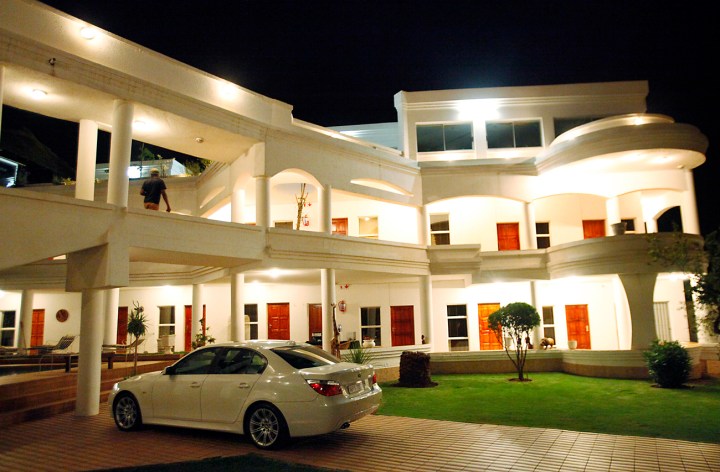Business Maverick
Are property prices still too high?

By now, it is commonly accepted that the 2008/09 recession was, essentially, a housing bubble. Estate agents in South Africa are delighted by the fact that house prices appear to be rising again. It is great for home owners (and estate agents), but, from an economic point of view, should we be worried?
A recent international comparison published in the Economist suggests South Africans should not only be worried, they should be scared witless.
The survey shows house prices in SA are 418% higher over the past decade, twice as much as any other country in the 20-country survey. But do special circumstances apply in SA compared to the other, mostly First World, countries in the survey?
Internationally, the survey is reassuring. It seeks to examine the extent to which house prices might be over- or underpriced by comparing the ratio of house prices to rents. This works much like a price/earnings ratio: just as the value of a share is determined by the present value of future earnings, house prices should reflect the expected benefit a home owner could expect from ownership of that property, and the rental income as the obvious proxy. The utility of the measure is that it takes scarcity out of the mix, because scarcity or oversupply would normally affect both rentals and house prices equally. (In reality, they don’t align precisely, but that is another story).
Using this measure, house prices in the US are below their long-term value, despite the fact that house prices themselves are by one measure up 75% over the past decade. In fact, by another measure, houses in the US are actually undervalued at the moment.
House prices in many other countries are still above their long-term average according to the ratio, and if you happen to own a villa in Spain, be afraid.
Looking at house prices alone, there might also seemingly be room for general concern. House prices were declining or flat almost everywhere in the world in the third quarter of 2009. In the fourth quarter, they were trending upward again, and in Hong Kong they reached double digits, while in mainland China house prices were up 8%.
Introduce the comparison with rentals, however, and the picture looks a bit better. The ratio shows the massive differential opening up since about 2005 around the world with house prices leaping up much faster than rental prices. But now things are generally back down to earth.
And now for the bad news. All of the same cannot be said of South Africa. As an accurate picture of rentals is not available, the ratio cannot be applied. But on the basis of a comparison of prices alone, there were seemingly few better places on earth to own property than in South Africa in 1997. This is consistent with the anecdotal evidence; a whole generation of South African home owners have been massively enriched by virtue of the growing political stability and perhaps the fact that their properties were undervalued in the first place.
Yet this rise in property values has had the troubling consequence that it is now difficult for new entrants into the property market who need to be earning solid middle-class salaries just to buy houses in upmarket, urban suburbs.
Real Estate Web quotes Lew Geffen, chairman of Sotheby’s International Realty in SA, as saying that the whole market has really come alive again since October. Nationally, the number of sales made in the last quarter was more than 45% and his company’s turnover was up 60%. The market is rapidly normalising towards a supply-and-demand balance, and house prices can be expected to return to the traditional average growth rate of around 9% this year, he told the website.
Clearly, “normalisation” for estate agents is something similar to what economists might describe as a bubble.
There are reasons why an average 9% growth in property price might not be out of the way, including the fact that you have to factor in inflation. House prices in SA are still pretty low by international standards if you compare the cost of the average car with the cost of the average house.
Yet economically, SA’s house price increase, combined with a quick rebound, could be a double-edged sword – seemingly good for home owners, but dangerous for the economy. Internationally, many countries are thankfully pulling out of the recession. The hard question is whether SA is pulling out too soon; before the property bubble has entirely deflated.
By Tim Cohen
Read more: Real Estate Web, Economist
Photo: The Vardos Place guest house in Soweto. REUTERS/Siphiwe Sibeko




















 Become an Insider
Become an Insider